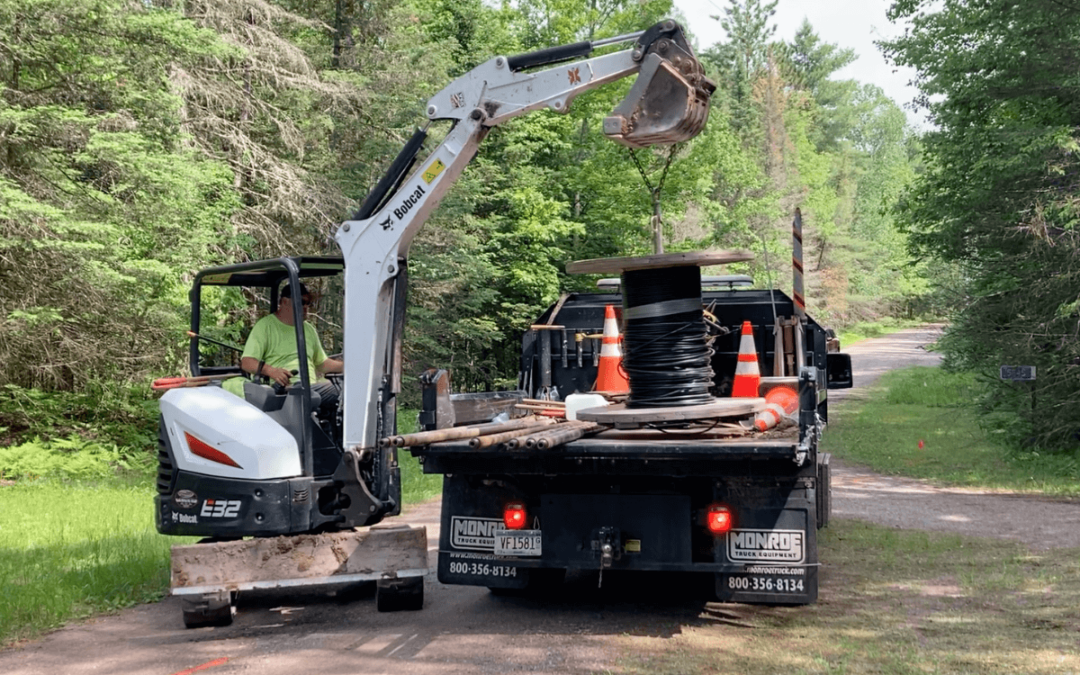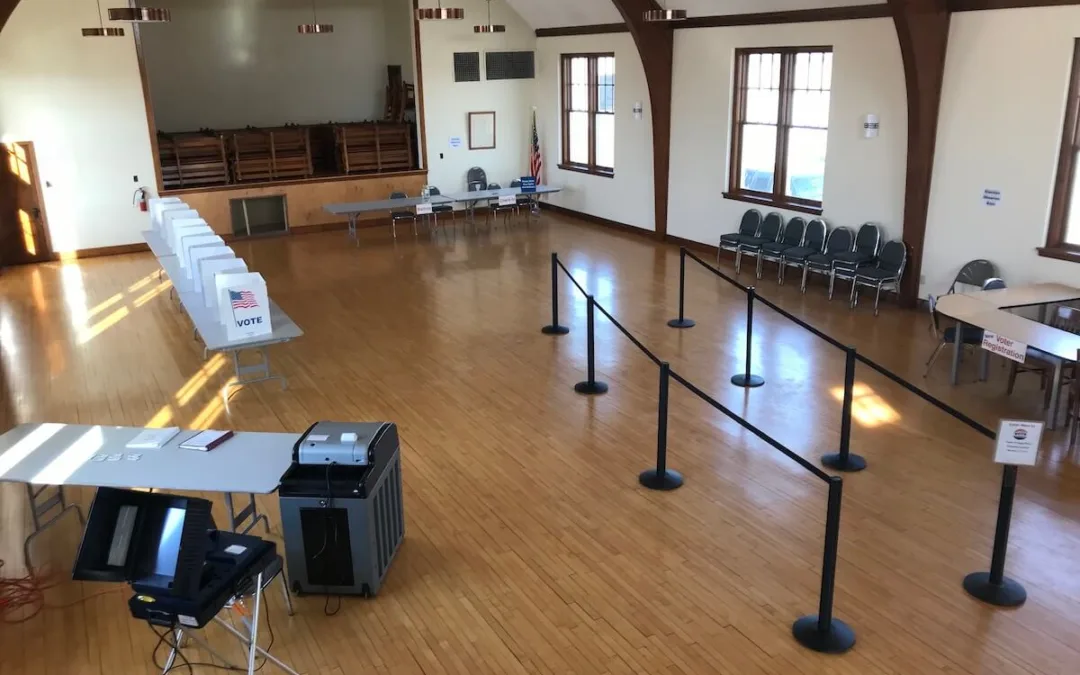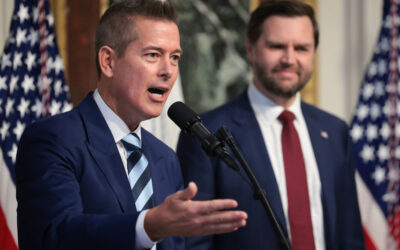
#image_title
Trump’s “Reconnect” America program has garnered $1.6 billion in funding from Congress to expand broadband. Biden is calling for a $20 billion investment.
Without federal aid, achieving Gov. Tony Evers’ goal of expanding broadband to every Wisconsinite by 2025 will likely be impossible. Little substantial work has been done under the Trump administration to help get rural residents in the state better internet, but Democratic presidential nominee Joe Biden would increase funding for expansion under his plan for rural America.
Broadband is widely seen as one of the most important amenities of modern times.
Yet millions of people in the United States and about 410,000 in Wisconsin lack access to high-speed broadband. This is defined by the Federal Communications Commission as a minimum speed of 25 megabits per second, or Mbps, download and 3Mbps upload. These are the speeds necessary for moderate streaming or gaming for a family.
“Federal support of broadband is really important coupled with our state’s real work on the issue,” said Brittany Beyer, chair of Evers’ Task Force on Broadband Access.
Those 410,000 thousand Wisconsinsites who lack high-speed broadband access or are roughly 7 percent of the state’s population, according to Public Service Commission spokesman Matthew Sweeney. Almost 23 percent of rural Wisconsinites don’t have service, Sweeney said. Further, 836,000 state residents have access to only one high-speed provider, according to broadband expansion advocacy group Broadband Now, which ranks Wisconsin 30th in the nation for broadband service.
“I get calls at my office weekly talking about broadband and the lack of it,” said Rep. Beth Meyers, D-Bayfield, whose legislative district in far northern Wisconsin has some of the spottiest broadband coverage in the state.
Evers’ lofty aim of broadband for all could cost up to $1 billion, to get rural Wisconsin updated and competitive in the 21st Century. The governor proposed $78.6 million for the state’s Rural Broadband Expansion program in the 2019-21 budget cycle, but Legislative Republicans only allowed $48 million.
That probably won’t increase in the state’s next budget cycle after the severe economic impact of COVID-19.
Under President Donald Trump, the U.S. Department of Agriculture has spent $80.9 million on various rural broadband expansion programs in Wisconsin since 2017, according to Frank Fassetto, the director of rural development for the USDA in Wisconsin. That has helped expand service to between 13,000 and 14,000 people, Fassetto said.
But that relative drop in the bucket hasn’t been enough for many in Wisconsin.
“I can tell you I haven’t seen any great improvement in my district in broadband [since Trump took office],” Meyers said.
Fassetto said he is frequently in contact with state legislators from rural Wisconsin to identify areas that need improved service.
“I wish it could be done tomorrow, but I also know that’s unrealistic,” Fassetto said.
The problems come back to funding. Federal and state money goes toward internet providers to help defray the cost of expanding into low-population areas they would not normally go due to a lack of a customer base. Without that subsidization, service providers are often wary of investing in rural Wisconsin.
“We need more money,” said Rep. Mark Spreitzer, D-Beloit, a member of the former Legislative Council Study Committee on Rural Broadband. “I mean, the bottom line is, unless you are going to order somebody to provide it, you have to pay people to provide it.”
The Trump administration’s “ReConnect” program run by the USDA, first established in the 2017 Tax Cut and Jobs Act, has so far received $1.6 billion in funding from Congress, Fassetto said. Biden’s plan would dwarf that by pumping $20 billion into a national rural broadband expansion program.
“Every state is going to have their representatives fighting for as much of that pie as they can get,” said Rep. Dave Considine, D-Baraboo, a member of the state’s Rural Development Committee. “If there’s $20 billion, then I would hope that Wisconsin could end up with half a billion.”
Another side of the issue, lawmakers and Fassetto pointed out, is that service is currently mapped by the FCC using Census blocks. In practice, that means that if a single house has broadband within a Census block, the FCC classifies the entire block as adequately serviced.
Beyer, the chair of Evers’ broadband task force, is also executive director of the Grow North Regional Economic Development Corp. that serves northern Wisconsin. She said the region has struggled to attract economic growth with businesses that rely on modern technology, in part due to inadequate broadband access.
“I can’t even play in that field as an economic development corporation,” Beyer said. “I can’t attract those businesses because we can’t offer the place to land your business if you’re in that realm.”
Anecdotally, Meyers said she knows of businesses that would like to locate themselves in the state’s northern reaches but have either chosen to set up shop elsewhere or had to relocate due to poor connections.
“We have to figure out a way in northern Wisconsin to recruit and retain young people,” Meyers said. “How are we going to survive if we don’t have 21st Century technology?”

Superior launches city-owned high-speed internet network thanks to Biden’s American Rescue Plan
Wisconsin’s first publicly-owned, open-access broadband network means competitive pricing and no monopoly ownership of the cables that keep Superior...

Opinion: Wisconsin should say no to outdated gas plants and yes to clean energy leadership
The Wisconsin Public Service Commission should reject the proposal to build a new methane gas plant in Oak Creek and Paris. Wisconsin is standing at...

Opinion: Celebrating Earth Day during the Year of the Kid
Lieutenant Governor of Wisconsin Sara Rodriguez is celebrating Earth Day and the “Year of the Kid” by calling for bipartisan action to protect the...

Election 101: If you’ve tuned out until now, here’s what to know for April 1
Wisconsin goes to the polls to decide control of the state Supreme Court and determine who’s in charge of schools—plus a constitutional referendum,...




